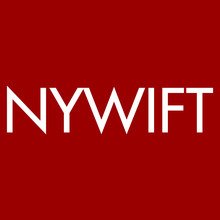Spotlight | Little Banchan Shop and Meju
/May is Asian American and Pacific Islander Heritage Month. Throughout the month, Broadway Stages will feature and celebrate exceptional people, businesses, and organizations of Asian and Pacific Island heritage. We invite you to join us in recognizing their accomplishments and contributions! Today, we take you to Long Island City to visit the Little Banchan Shop and its sister restaurant, Meju.
"All Korean families have banchan in our fridge," said chef Hooni Kim. With this in mind, he opened the Little Banchan Shop in August 2022. Banchan is small-batch Korean food, and as the shop's website notes, “Pretty much anything in a Korean meal can be considered banchan if you eat it with rice.”
The store offers a wide variety of banchan dishes as ready-to-eat or ready-to-heat meals. Banchan is generally meant to be stored in the fridge and portioned at each meal. The offerings give the consumer a sense of domestic cuisine, a departure from Chef Kim's other restaurants, like Danji, the first Michelin-starred Korean restaurant.
The offerings include small dishes like sigeumchi (sauteed spinach) and gyeran jorim (marinated eggs) to larger entrees like andong jjimdak (braised chicken) and yangnyeom galbi (BBQ soy-marinated short ribs). The home page of its website gives a better sense of the over 50 types of banchan, soups and stews, marinated meats, and braised meats that they have available.
The shop is open Tuesday through Saturday from 10 a.m. to 9 p.m. and Sundays from 10 a.m. to 8 p.m. For more information, follow the Little Banchan Shop on Instagram.
But wait! There's more! Hidden behind the shop's storefront is Meju, Queens' only Michelin-starred restaurant. Chef Kim calls this "the culmination of all of his years of experience as a Korean chef."
The name Meju comes from the blocks of dried soybeans essential for kick-starting the wild fermentation of jangs, traditional Korean seasoning pastes. These pastes are the center of Meju's tasting menus. Chef Kim started fermenting the jangs for his personal use, but an idea blossomed when he realized the Little Banchan Shop had a small space available.
Chef Kim said, "The reason I opened Meju is that I felt like the real story of Korean cuisine was missing in New York." He added, "What restaurant defines traditional Korean food in this city? It's a gap I wanted to fill." Even the most straightforward bowl of rice with kimchi is an homage to his mentor. This Korean medicine man uses food and fermentation to heal.
Chef Kim said his mentor taught him, "Korean food is always health first, flavor second. You always think of nutrition instead of chasing pure flavor like restaurant chefs are trained to do. You have this higher ideal." He noted that "Meju isn't just about delicious food. It's a story: one about Korean flavors and jangs and their history." While the jangs take significant time and care in their development, the other menu items depend on what is available at the farmer's market.
You can keep up with Meju via its Instagram page. But be forewarned. Open Thursday, Friday, and Saturday from 6:30 p.m. to 9:45 p.m., Meju has only eight seats, so space is at a premium. It only makes sense that you need to plan ahead and make reservations.
Chef Kim is a busy man. He still helms Danji in Hell's Kitchen, but he splits his time between New York and his birthplace, Korea, where he founded a nonprofit that feeds orphans and trains them to become cooks. In his spare time, he has written a cookbook that can often be seen on TV both here and in Korea. But he remains a simple man. "I'm just happy to be serving eight diners a night and telling impactful stories to a few people."
Whether you sample his cuisine from the Little Banchan Shop or in the back at Meju, consider yourself lucky. And when you do, tell them Broadway Stages Sent you.





